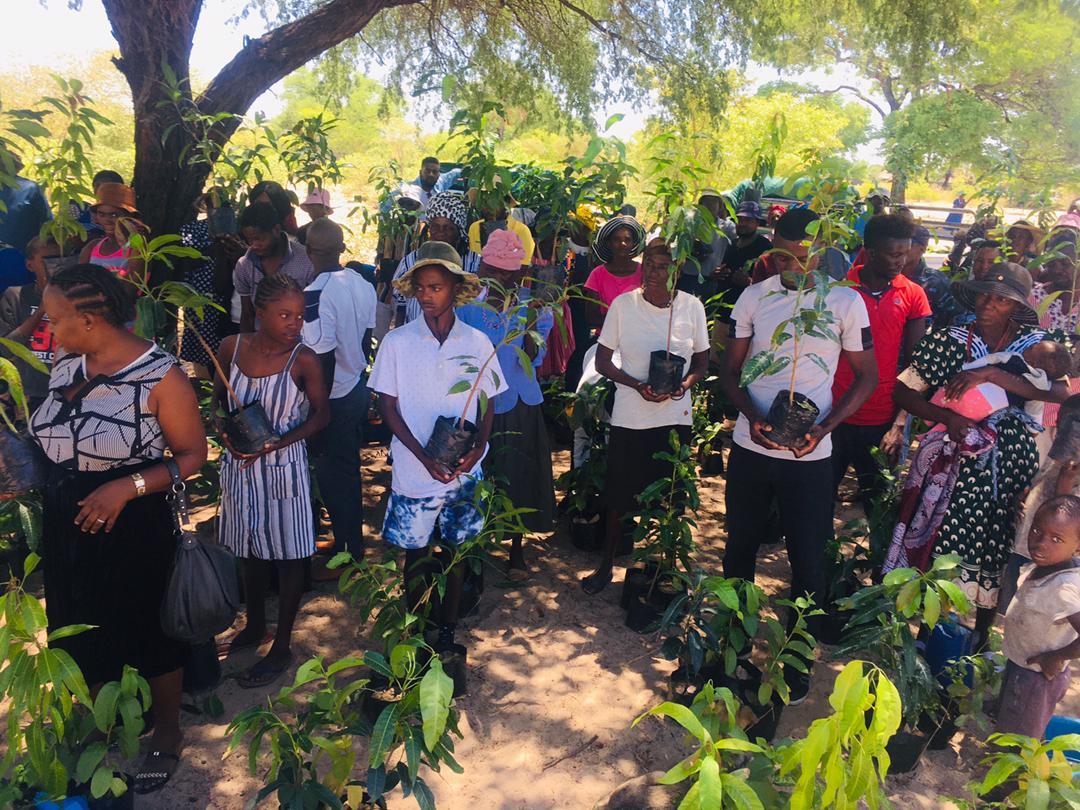Africa-Press – Namibia. The Ohangwena Regional Council passed council resolution C04/08/12/18, supported by a management committee recommendation on MC03/09/09/21, and approved an amount of N$ 1 393.614.92 to be used for the implementation of the “Plant a Tree Project” under their regional specific action plan.
The regional council, in conjunction with the directorate of forestry, is implementing the aforesaid project.
The main objective of the regional specific action plan for food security is to contribute to sustainable ways of farming which will improve productivity for small-scale farmers, and transform them into commercial entities.
Spokesperson of the Ohangwena region Silas Nepembe explained that the specific objective of the programme is to substantially reduce the number of food-insecure and malnourished people in Namibia through mobilising rural communities to engage in food production activities for improving household food production, developing an integrated farming system to improve the quality of household food consumption through diversified crop and livestock production, the promotion of commercial practices for income-generation from surplus produce by poor rural farmers, provision of capacity-building to beneficiaries for improved production and marketing skills to produce food sustainably, and the promotion of rural household post-harvest storage facilities and techniques.
He stressed that improving food security involves very complex concepts and strategies from different stakeholders. Namibia has adopted the concept of sustainable food and nutrition security, as enshrined in the Namibian Constitution, Article 95 (a) – (1), and as evidenced by many policies, laws and programmes currently in place.
“Namibia’s Vision 2030 also commits the Government of the Republic of Namibia to devise programmes and projects to ensure food security at national and household levels. Consequently, in the National Development Plans (NDP1 – NDP5), the government has committed itself to creating an enabling environment to fight poverty and achieve food security in Namibia,” Nepembe added.
Correspondingly, the 2030 Agenda for Sustainable Development and the United Nations Decade of Action on nutrition calls on all countries and stakeholders to end hunger and prevent all forms of malnutrition by 2030.
“It made a resolution that aims to trigger intensified action to end hunger and eradicate malnutrition worldwide, and ensure universal access to healthier and more sustainable diets for all people, whoever they are and wherever they live.”
Interestingly, the region has identified 10 villages in all 12 constituencies to benefit from the aforementioned project. The beneficiaries of this project are the households within these villages, as well as public or private institutions operating within these selected villages such as schools, churches and others.
Under this project, beneficiaries are receiving five fruit tree seedlings per household or institution.
The fruit tree seedlings consist of two Guava, one Mango, one Moringa and one Lemon, to total five.
Finally, the distributions were conducted in various constituencies within the region, except Okongo, Omundaungilo and Oshikunde. However, the distribution will still be done in those constituencies within this current financial year.
For More News And Analysis About Namibia Follow Africa-Press






